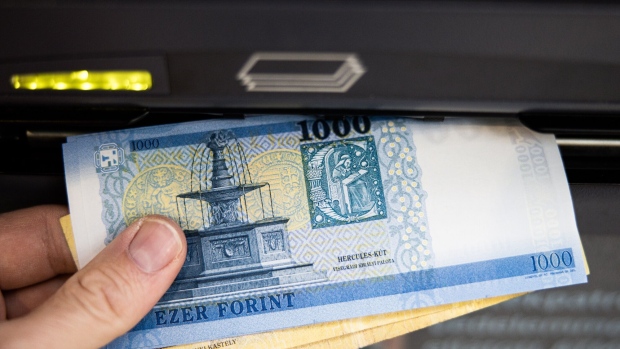Apr 11, 2024
Emerging-Market Currencies Erase April Gains on South Korea, Fed
, Bloomberg News

(Bloomberg) -- Emerging-market currencies and stocks fell as faster-than-expected US inflation data released the day before continued to weigh on risk sentiment.
After initially paring losses on US PPI numbers at the start of US trading hours Thursday, MSCI indexes for developing world currencies and stocks each ended the day about 0.3% lower. Most currencies weakened, with the South Korean leading the drop and the Brazilian real touching a new low for the year.
Emerging assets are under pressure as persistent inflation in the world’s largest economy sent traders scrambling to rework the outlook for US interest rates, pushing back the timeline for the Federal Reserve to lower borrowing costs and forecasting fewer cuts ahead. Rising geopolitical tension in the Middle East is also damping investor appetite for risk.
“Markets are still digesting CPI, but PPI suggested little relief ahead with regards to inflation,” said Win Thin, managing director and global head of markets strategy at Brown Brothers Harriman & Co. “I believe many EM central banks will have to recalibrate their easing cycles in light of the Fed outlook, lest their currencies come under withering pressure.”
Read more: Bond Traders Shift Thinking to a 5% Yield, No Rate Cut World
Brazil’s real weakened to the lowest level since October, while Peru’s sol outperformed most of the other 22 emerging peers tracked by Bloomberg ahead of a central bank meeting in which policymakers are expected to keep borrowing costs unchanged for the second time.
Elsewhere, El Salvador is tapping the global debt market with an offering that will pay investors a higher interest rate if the government fails to win credit upgrades or a deal with the International Monetary Fund. It’s the first bond deal in nearly four years for the junk-rated borrower and follows a broad rally in El Salvador’s debt. S&P Global Ratings affirmed the country’s credit at B-.
Argentina’s central bank cut its main interest rate for the third time since President Javier Milei took office, lowering rates to 70% from 80% Thursday.
©2024 Bloomberg L.P.






